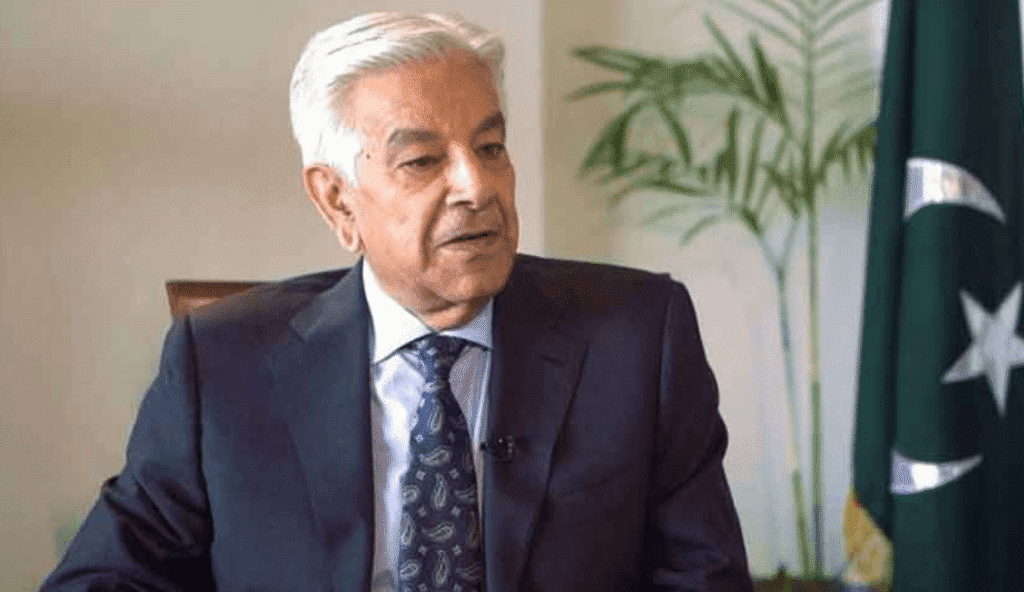ISLAMABAD: Defence Minister Khawaja Asif on Tuesday delivered a forceful critique of Indian Prime Minister Narendra Modi, claiming his political grip is weakening in the face of growing internal dissent and international scrutiny.
Addressing journalists in Islamabad, Asif stated bluntly, “Modi’s days are numbered.” He argued that the Indian leader is losing control as public backlash intensifies and his efforts to contain the crisis—including a recent national address—have fallen flat. “The situation has slipped beyond his control,” Asif added.
Setting the tone for any future dialogue with India, the minister emphasized Pakistan’s position on key issues: terrorism, the Kashmir conflict, and water rights. He accused India of manipulating regional tensions while unjustly blaming Pakistan.
“For over two decades, terrorism has haunted Pakistan. We have paid the highest price in the global war on terror, and yet we’re constantly scapegoated,” he said. Asif called for international recognition of Pakistan’s counterterrorism efforts and demanded India be held accountable for what he called “destabilising conduct.”
He cited emerging allegations from the West, pointing to reported Indian involvement in violent plots uncovered in both Canada and the United States. “These developments cannot be ignored. India’s international actions must be part of the conversation,” he said.
On Kashmir, Asif reaffirmed that the long-standing dispute remains the core issue between the two nuclear neighbours. “The people of Kashmir cannot be silenced. A just resolution is overdue,” he stated.
He also warned India against breaching the Indus Waters Treaty, calling it a legally binding agreement. “No country can unilaterally walk away from such commitments. Any attempt to politicise water will face strong resistance,” Asif asserted.
The current backdrop is a fragile ceasefire between the two countries following severe military tensions. Hostilities had intensified after a deadly April 22 attack in Pahalgam, Indian-administered Kashmir, which killed 26 civilians. India immediately blamed Pakistan-based actors without presenting evidence, a claim strongly denied by Islamabad.
The escalation included India’s launch of Operation Sindoor, involving missile and drone attacks, and Pakistan’s swift retaliation with Operation Bunyan-un-Marsoos, during which it claimed to have downed five Indian jets and intercepted dozens of drones.
Diplomatic efforts, led by the United States and acknowledged by officials from both nations, including Prime Minister Shehbaz Sharif and Indian Foreign Minister S. Jaishankar, resulted in a ceasefire agreement on May 10. However, reports of renewed violence soon surfaced, with explosions in Srinagar and cross-border gunfire casting doubt over the truce’s durability.
Pakistan’s Foreign Office reiterated its readiness for peace but accused India of violating the ceasefire almost immediately. Military spokesperson Lt Gen Ahmed Sharif Chaudhry clarified that Pakistan had not sought the truce. “India called for de-escalation after our firm response,” he said, while denying social media claims of Indian pilots being captured.
Chaudhry described Pakistan’s military action as a unified national defence strategy and stated that all strategic objectives had been met.
Meanwhile, cities across Pakistan marked Youm-e-Tashakkur (Day of Thanks) to celebrate what many viewed as a successful defence against Indian aggression.
